I recently accepted a beautiful piece of writing by an author who wrote back to thank me — and to graciously say he’s open to feedback—which was a lovely, appreciated response. Writers have been known to bristle at suggestions. I can’t remember the exact details but there’s a literary legend about an editor getting punched in the nose at a cocktail party over the unauthorized insertion of an Oxford comma.
I, on the other hand, am a firm believer in the benefits of a second pair of eyes. On pretty much everything. Bathing suit selection, ridiculous picture height placement over couches (the offending members of my family know who they are) and of course, appalling political beliefs.
But that’s another post.
Unless the well-versed critic of the written word is passive aggressive and/or seriously impaired (they’re out there, believe me) editors should be seen as people whose only goal is to bump up the prose. While authors should have the last word on the word—they really should give their first audience a fair hearing.
One only has to look as far as public signage for hardcopy examples of how an intervention might have helped. In fact, I’m constantly fighting the impulse to extract a pen from my jumbled purse and fix things. You know, as a public service. I have been known to perform intricate U-turns in order to verify what I thought I saw in my peripheral vision on garbled side-of-the-road missives. And even when very, very late and rushing to get to a doctor’s appointment, I’ve backtracked to reread (and document) unhelpful guideposts.
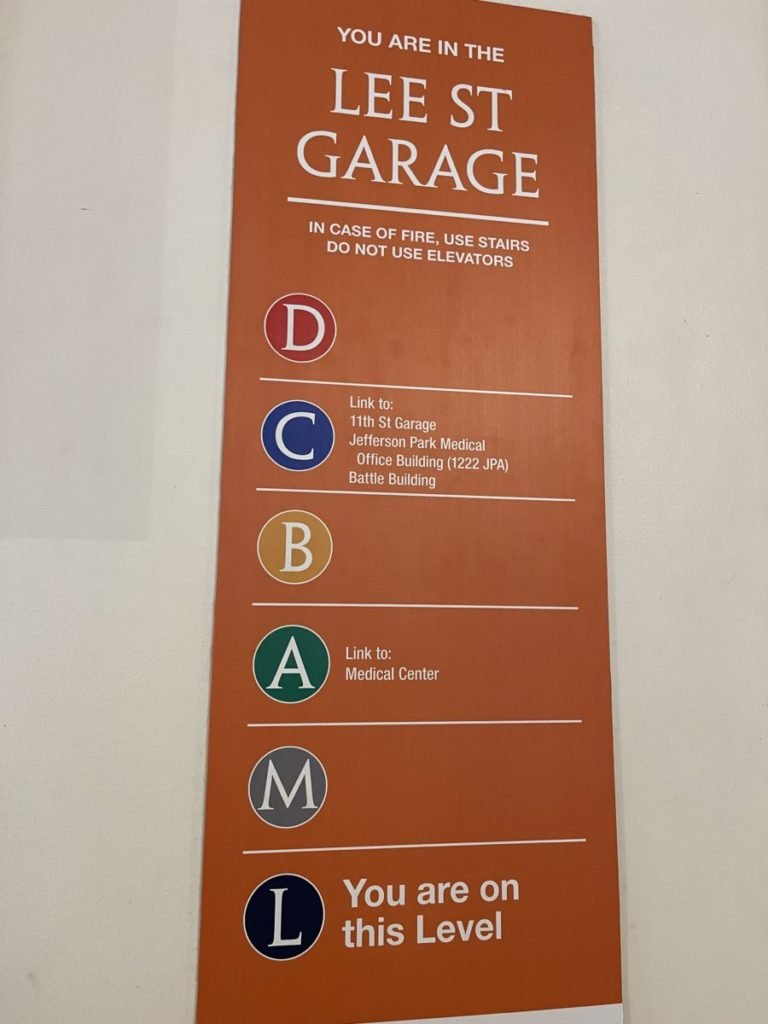
Sometimes it’s not just words. The following pictograph in a local park illustrates–what, exactly? How to surf the web while miming parental involvement?
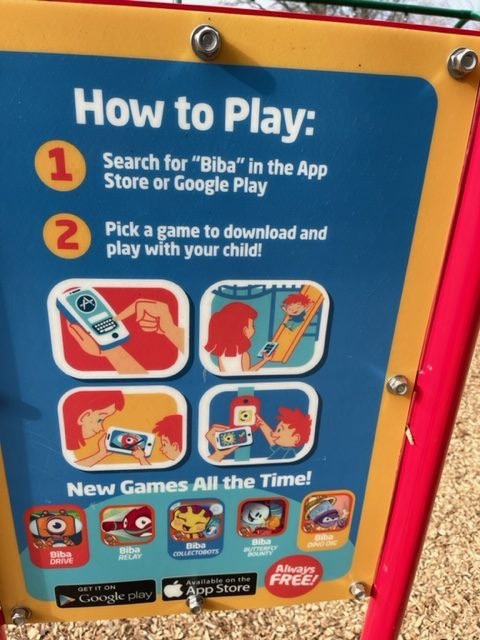
My interest in the memorializing of the absurd has been going on for years. Nearly two decades ago I wrote a piece for the Washington Post about the South’s tendency to simultaneously torture and gussify written language. Grammatical symbols are used as decorations down here. I believe I pointed out bizarrely placed quotation marks around words like free, sale and fresh. (Is the latter really something that you want air quotes around when it’s adjectfying milk in the dairy aisle?)
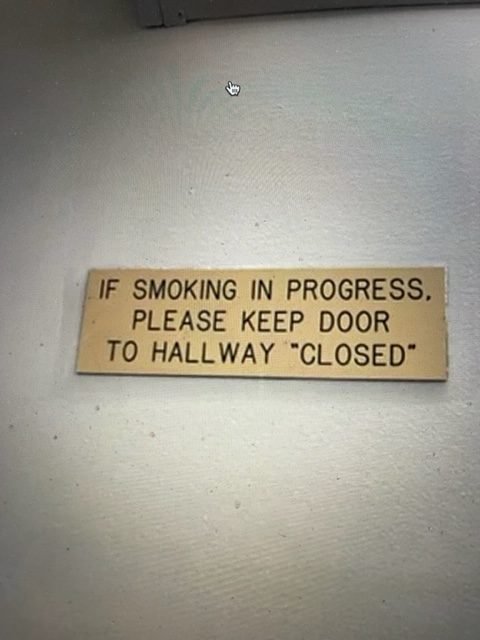
Loquacious signs cause me to wonder about the economics of the undertaking. Are their creators paid by the word like freelance journalists? Which would explain the one I saw blinking an announcement that it wasn’t in fact functional. (Just unplugging it would have worked, too.) Clearly somebody lobbied hard for their work to be left alone.
Same for this puzzlement:
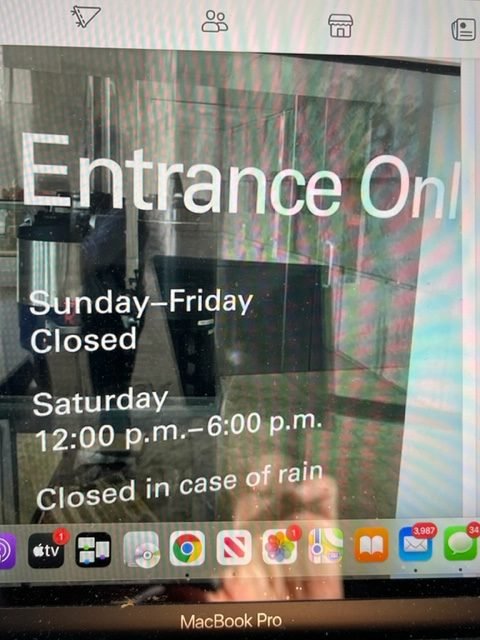
A good editor would have recommended context clues:
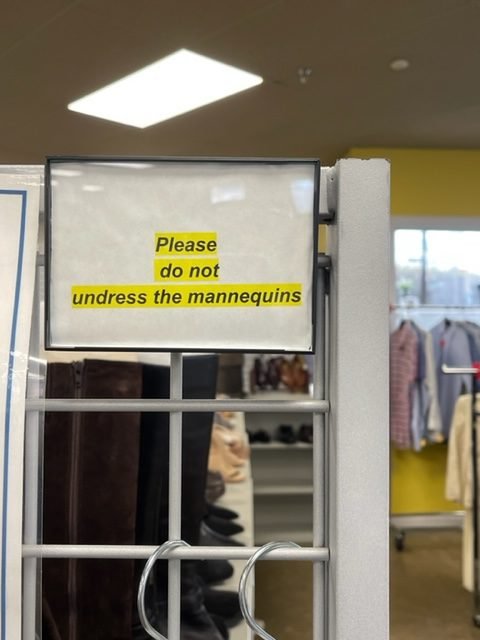
And this one caused a small fire in my frontal cortex:
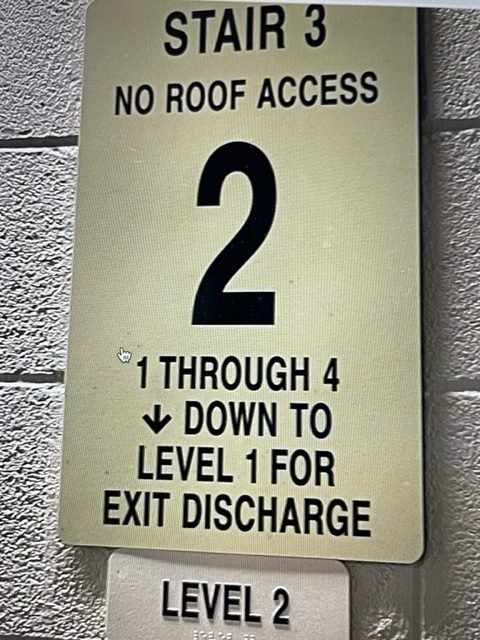
All of us benefit from fair eyes on our work. Seriosly.
All photos taken by Erika Raskin

Share this post with your friends.

